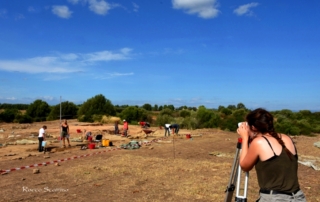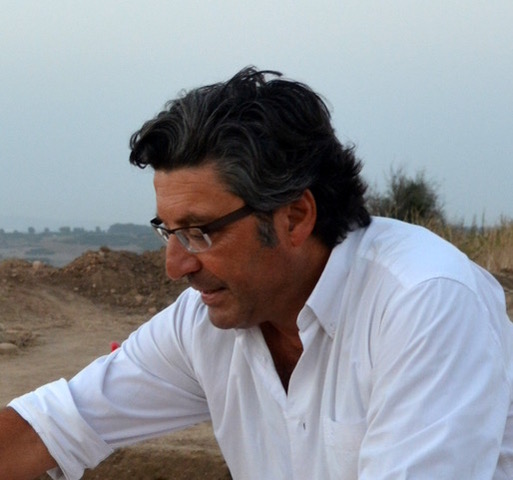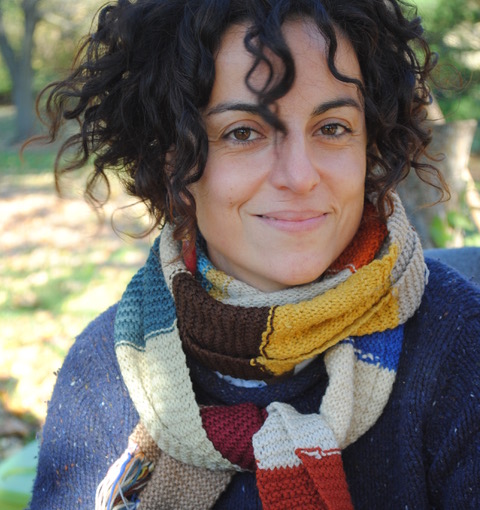Overview
From the 8th to the 6th century BC, migrants from the Aegean settled across the Mediterranean from the Black Sea to Spain. Known as the Greek colonization, this far-reaching phenomenon coincided with and helped catalyze a period of dramatic change towards more hierarchical, urbanized and interconnected communities along the Sea’s coasts. Interactions between locals and Greeks were undoubtedly an important part of this process, which took many forms depending on where and when it occurred. One of the key sites where these interactions can be studied in detail is Incoronata in the Basilicata region of southern Italy. The site is nestled atop a hill overlooking the valley of the river Basento, a few kilometers inland from the Ionian Gulf where many Greek colonies later flourished. Incoronata was an important indigenous site before a group of Greeks settled there in the 7th century. By studying the phases before and after the arrival of the Greeks, archaeologists can track the impact of the Greek’s arrival on the local culture and investigate how the practices, beliefs and identities of all people involved changed through this interaction. Because Incoronata was abandoned at the beginning of the 6th century BC and never re-occupied, the site is characterized by the exceptional preservation of a series of production and ritual contexts, showing a mix of both local and Greek material culture. Students will have the opportunity to work on a variety of these contexts, and to engage in every stage of field research from excavation to documentation, find processing, recording and interpretation.
Instructors
The directors welcome emails and inquiries about the research elements of this project. More general information (tuition, health insurance, and payment schedule) can be found under the ‘Students’ tab above. Any further questions may be addressed to IFR staff. Additional details about research, course schedule, travel, accommodation, and safety can be found on the syllabus. Contacting the directors or the IFR office is encouraged and appreciated. It may help you determine if this field school is a good fit for you.
Testimonials
This is a new IFR field school. No student testimonials are available at this time.
Tuition Includes:
- Cost of Instruction
- Cost of Academic Credit Units
- Room & Board
- All local transportation
- Health & Evacuation Insurance
Student Fees
This program requires an online application — there is no fee to submit an application. Once admitted, a payment of the nonrefundable deposit fee is required to secure a place in the program(s). The Tuition balance (total program cost minus the deposit fee) must be paid prior to the Tuition deadline as listed above under “Course Details.” A $200 late fee will be added to all accounts not paid in full by the Tuition deadline.
Early Decision Enrollment (Nov 1, 2019 through Jan 10, 2020): A reduced, nonrefundable $300 deposit fee is required to secure a seat in the program. This deposit is part of the total Tuition and NOT in addition to it.
Regular Enrollment (Jan 11, 2020 through payment deadline): A nonrefundable $500 deposit fee is required to secure a seat in the program. This deposit is part of the total Tuition and NOT in addition to it.
Late Enrollment (payment deadline forward): A nonrefundable $600 deposit fee is required to secure a seat in the program. In addition, a $200 late fee will be added to all accounts not paid in full by the Tuition payment deadline.
Withdrawal & Cancellation Policy: If you paid the deposit fee but did not cancel your participation by the Tuition payment deadline, you are legally responsible for the full Tuition regardless of attendance at any IFR program. Please carefully read our Withdrawal & Cancellation Policy for further information.
Credit Card Processing Fee: A 2.5% processing fee is automatically incurred for all credit/debit card/online payments.
Academic Credit Opt Out: Students who wish to participate in an IFR field school without earning academic credit units may do so and receive the following discounts: $300 off a full program (4 or more weeks in length) or $200 off a short program (2-3 weeks in length).
Trip Cancellation Insurance: The IFR does not provide trip or travel cancellation insurance. We encourage students to explore such insurance on their own as it may be purchased at affordable prices. AON Student Insurance, Insuremytrip.com or Travelguard.com are possible sites where field school participants may explore travel cancellation insurance quotes and policies. If you do purchase such insurance, make sure the policy covers the cost of both airfare and tuition. See this Wall Street Journal article about travel insurance that may help you decide whether to purchase such insurance.
Accommodations
Throughout the whole duration of the field school we will be staying at the agriturismo (farm-hotel) Fontanalapietra, located in the valley of the Basento river. Three or four students normally share a room with en-suite bathroom. The bedrooms are basic but comfortable.
The agriturismo has a restaurant that provides us with excellent, locally-sourced food for dinner. The cook can prepare vegetarian or gluten-free diets, but please note that more specific (e.g. vegan or religion-based) dietary requirements can unfortunately not be accommodated.
All formal lectures, training and lab work takes place on the premises of the agriturismo. For moments of relaxation the agriturismo also has a swimming pool.
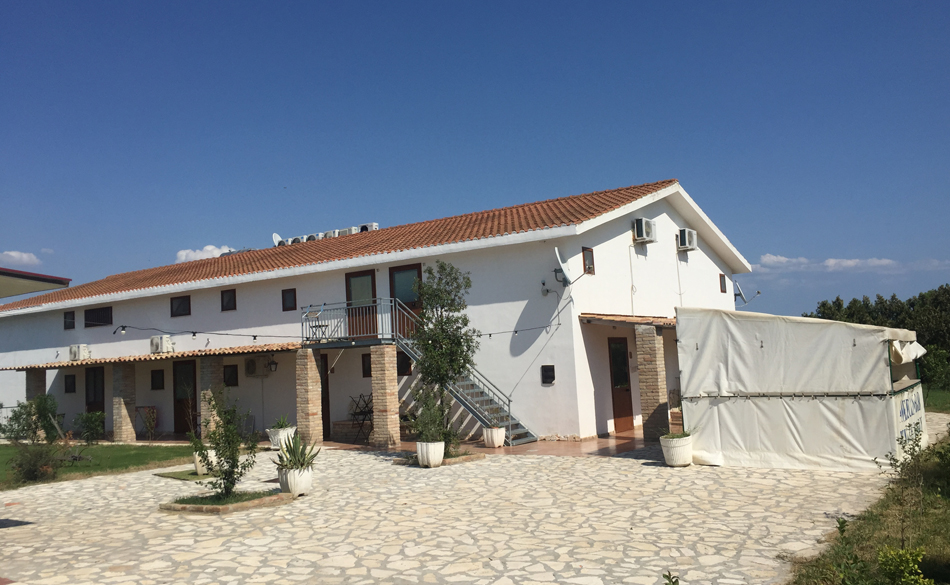
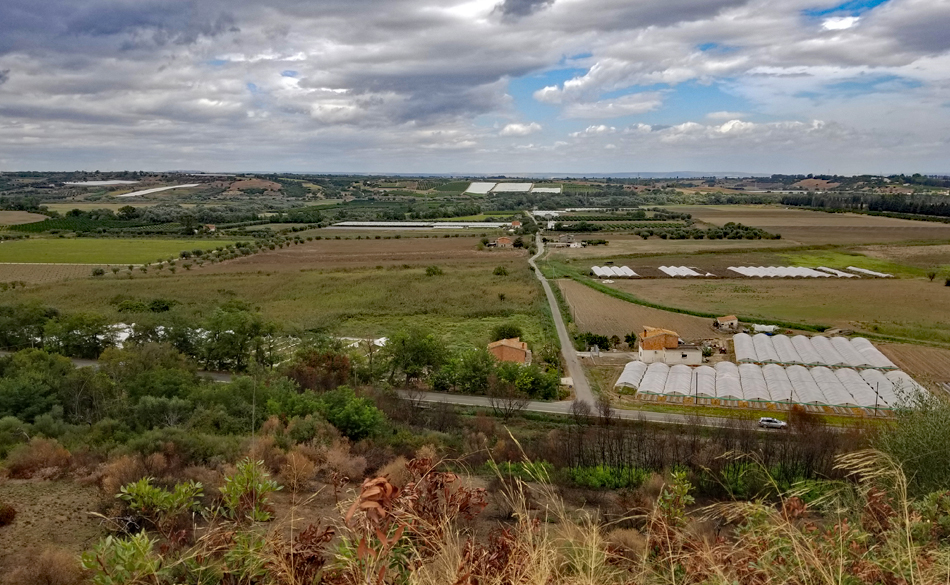
Travel Info
We suggest you hold purchasing your airline ticket until six (6) weeks prior to departure date. Natural disasters, political changes, weather conditions and a range of other factors may require the cancelation of a field school. The IFR typically takes a close look at local conditions 6-7 weeks prior to program beginning and make Go/No Go decisions by then. Such time frame still allows the purchase deeply discounted airline tickets while protecting students from potential loss if airline ticket costs if we decide to cancel a program.
Basilicata is one of Italy’s most rugged regions, and travel to the site takes some time. A member of our team will meet in Rome with the students and they will make their way by train to the agriturismo together. The meeting point is at 2.30 pm at Termini train station in Rome, at the right entrance (coming from Piazza dei Cinquecento, which is the square in front of the station) of the bookstore Borri Books. The trip takes about 5 hours and a half. They will be picked up at the station of Ferrandina and driven to the agriturismo, which is about 20 minutes away.
If you miss the meeting, please get in touch with us and we will give you directions to reach us independently.
VISA REQUIREMENTS
There are no special visa requirements for American citizen travelling to Europe, as long as they do not stay longer than 3 months. Passports expiration date should exceed the stay by at least three months. Citizens of other countries are asked to check the embassy website page at their home country for specific visa requirements.
Student Safety
The IFR primary concern is with education. Traveling and conducting field research involve risk. Students interested in participating in IFR programs must weigh whether the potential risk is worth the value of education provided. While risk is inherent in everything we do, we do not take risk lightly. The IFR engages in intensive review of each field school location prior to approval. Once a program is accepted, the IFR reviews each program annually to make sure it complies with all our standards and policies, including student safety.
Students attending IFR international programs are covered by a comprehensive Health Insurance policy that includes physical illness or injury, mental or chronic conditions. No deductible and 100% of costs are covered up to $250,000. In addition, we provide Political and Natural Disaster Evacuation policy, which allow us to remove students from field school location if local conditions change. Our field school directors are scholars that know field school locations and cultures well and are plugged in into local communities and state institution structures.
Students attending IFR domestic programs (within the US) must have their own health insurance and provide proof upon enrollment. IFR field school directors are familiar with local authorities and if in need of evacuation, local emergency services and/or law enforcement will be notified and activated.
The IFR has strong, explicit and robust policy towards discrimination and harassment in the field. If students feel they cannot discuss personal safety issues with field school staff, the IFR operates an emergency hotline where students may contact IFR personnel directly.
Call us at 877-839-4374 or email us at info@ifrglobal.org if you have questions about the safety of any particular program.















